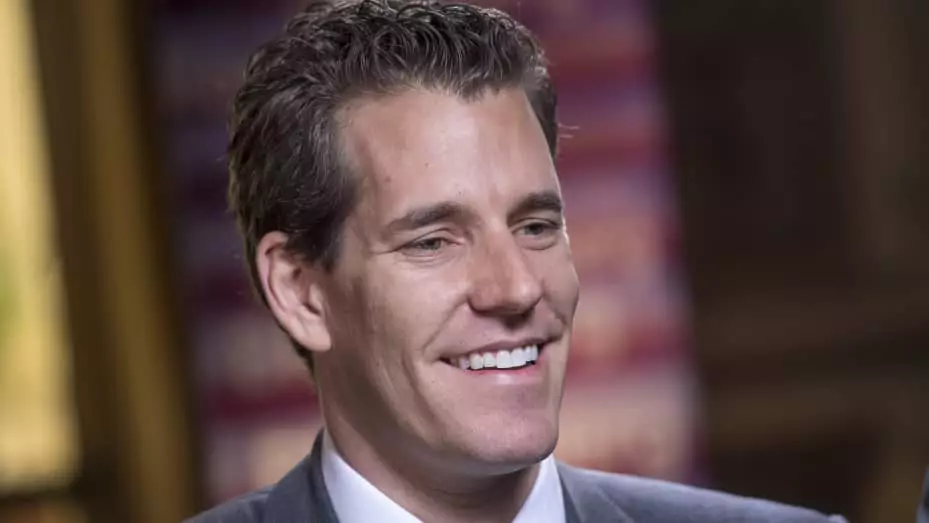The cryptocurrency industry, long plagued by uncertainty and regulatory scrutiny, is experiencing a significant shift in how it engages with legal institutions. Tyler Winklevoss, the co-founder of the Gemini crypto exchange, has recently echoed the sentiments of his counterpart, Coinbase CEO Brian Armstrong, by announcing that Gemini will no longer partner with any law firms or entities that employ former officials from the U.S. Securities and Exchange Commission (SEC) who have been implicated in overreaching regulatory practices. This decisive stance underscores a growing discontent within the crypto community regarding the conduct and policies of the SEC that arguably stifle innovation and entrepreneurship in the digital asset space.
Winklevoss’s remarks, made via a social media post, called for greater transparency, urging the community to compile a list of SEC officials involved in what he terms an “unlawful war on crypto.” This overt critique of the SEC not only aligns Winklevoss with Armstrong’s recently aggressive stance against the hiring of ex-SEC employees but also reflects a broader disillusionment with regulatory practices that are seen as punitive rather than protective of investors and the industry at large.
Armstrong’s comments have set the stage for a much-needed conversation about regulatory accountability. His decision to sever ties with Milbank, a prestigious global law firm that recently hired Gurbir Grewal, the former SEC Director of Enforcement, represents a bold stance against what he perceives as a systematic approach to undermining the crypto industry. Grewal’s involvement in over a hundred enforcement actions, coupled with his exit just as the SEC prepared to appeal in the high-stakes Ripple case, raised eyebrows and ignited speculation about the integrity of SEC practices. Legal experts have expressed concern that this sudden resignation may hint at internal conflicts within the SEC, suggesting that its leadership is treading a precarious path.
The scrutiny surrounding the SEC’s operations has intensified, as critics, including attorney Jeremy Hogan, argue that the ongoing appeal in the Ripple case could backfire, ultimately weakening the agency’s influence. Armstrong’s assertion that those senior officials who remain in their roles despite the agency’s controversial tactics should be held accountable illustrates a growing movement in the crypto community demanding reform and clarity in regulation. His call for a more constructive regulatory environment emphasizes the belief that the past missteps of former officials should not translate into financial benefits for them in the burgeoning crypto landscape.
The situation has become even more intricate with the political landscape shifting alongside it. The desire for accountability is not limited to Winklevoss and Armstrong; figures like Justin Sun, the founder of Tron, have also attracted attention by publicly offering employment to outgoing SEC Chair Gary Gensler. Following Donald Trump’s victorious November poll, Sun’s proposition underscored a willingness to reshape the crypto regulatory environment, emphasizing that Gensler’s future role would hinge on his sincerity towards the cryptocurrency industry. This highlights not only a demand for accountability but also a potential avenue for bridging gaps between regulatory bodies and the fast-evolving world of digital assets.
As the crypto industry continues to grow, the need for a coherent, fair, and transparent regulatory framework becomes increasingly vital. Winklevoss and Armstrong’s initiatives signal a serious commitment to holding regulatory officials accountable and advocating for the future of the industry. The landscape is undoubtedly complex, yet the actions of key players suggest a unified front against what some perceive as overreach by the SEC—a narrative that could ignite change in the regulatory approach toward cryptocurrencies.
As Winklevoss and Armstrong take these definitive steps, the response from the crypto community and regulatory bodies remains to be seen. The implications of this movement could redefine how the crypto industry interacts with legal institutions moving forward. If the trajectory set by these leaders is to be followed by others within the sector, we may very well witness a transformation in the dynamics between regulatory entities and those they govern. The desire for accountability could pave the way for a new era of coexistence, one where innovation thrives within a framework that protects both the integrity of the market and the interests of those who participate in it.















